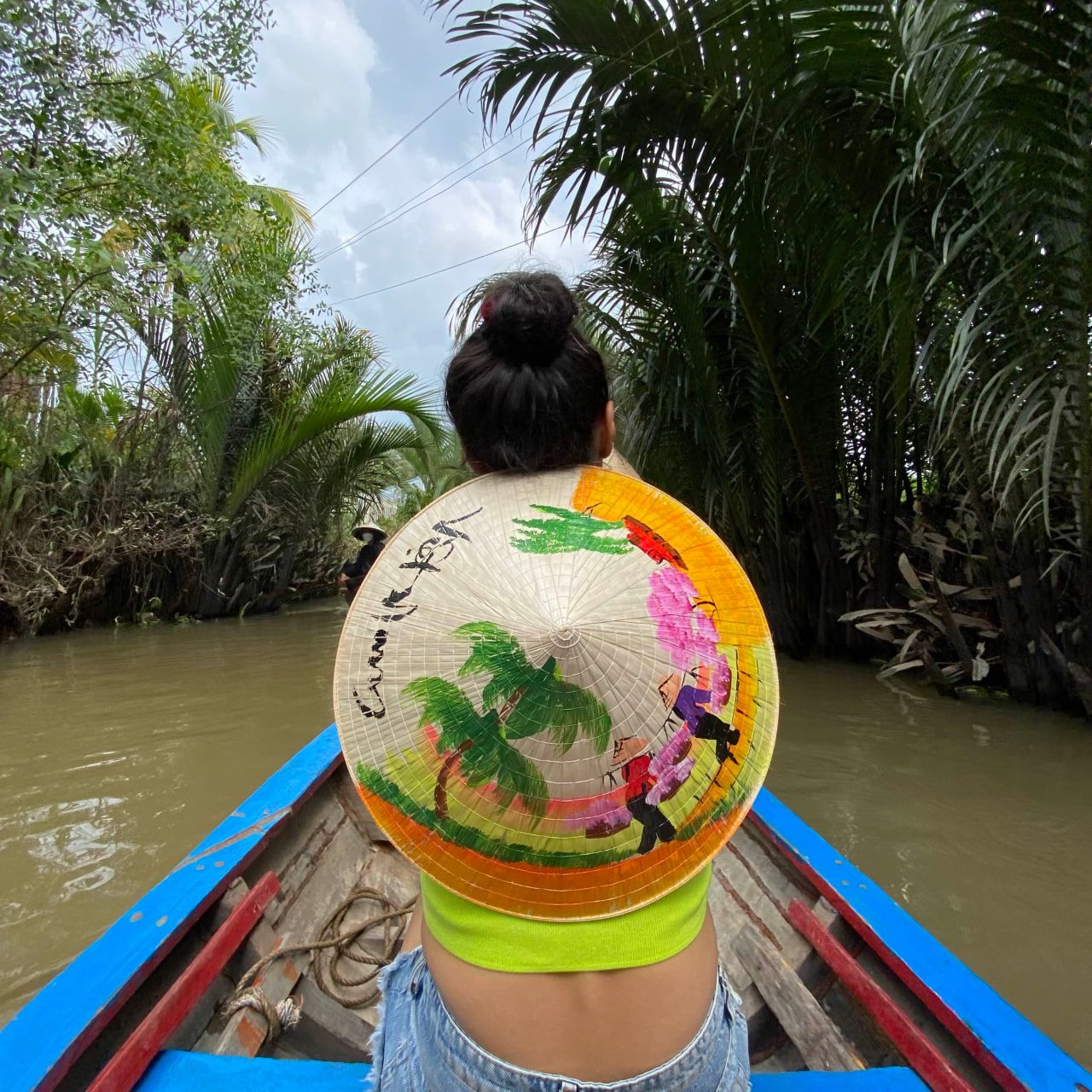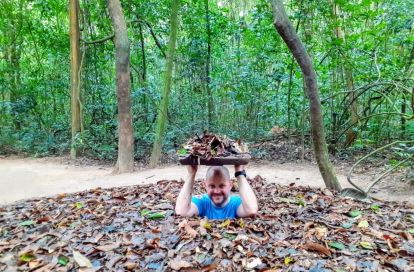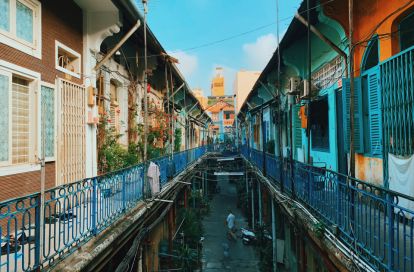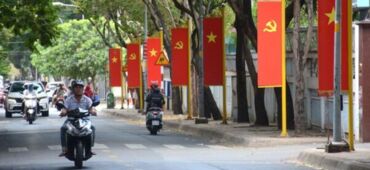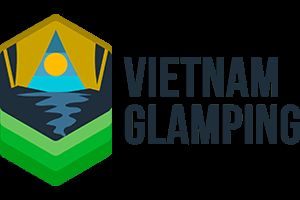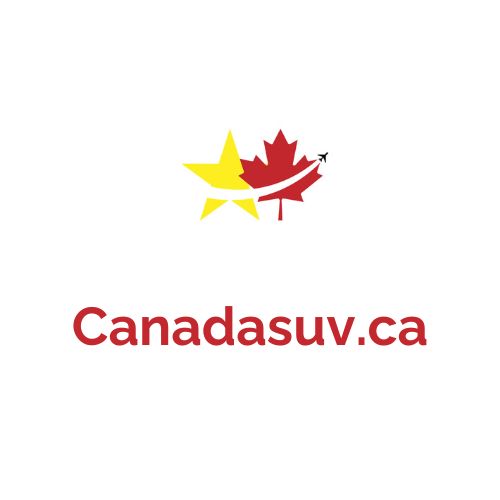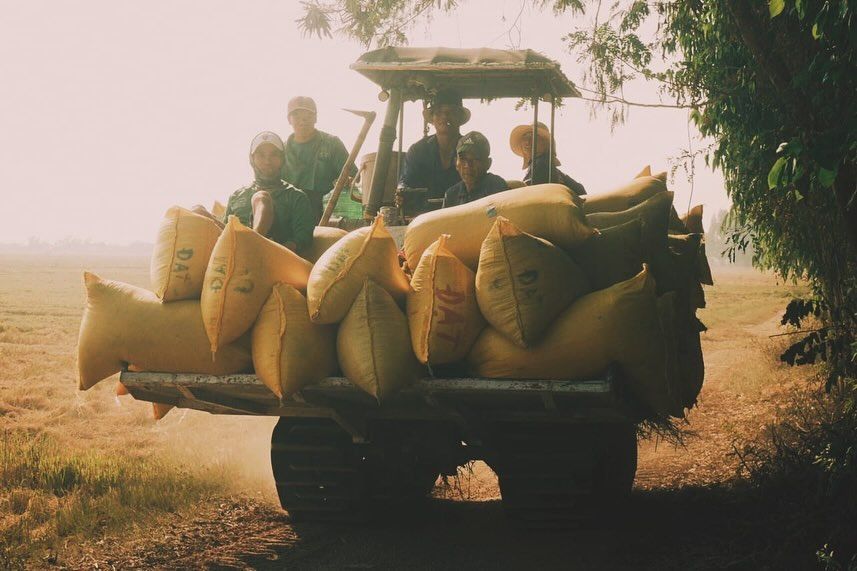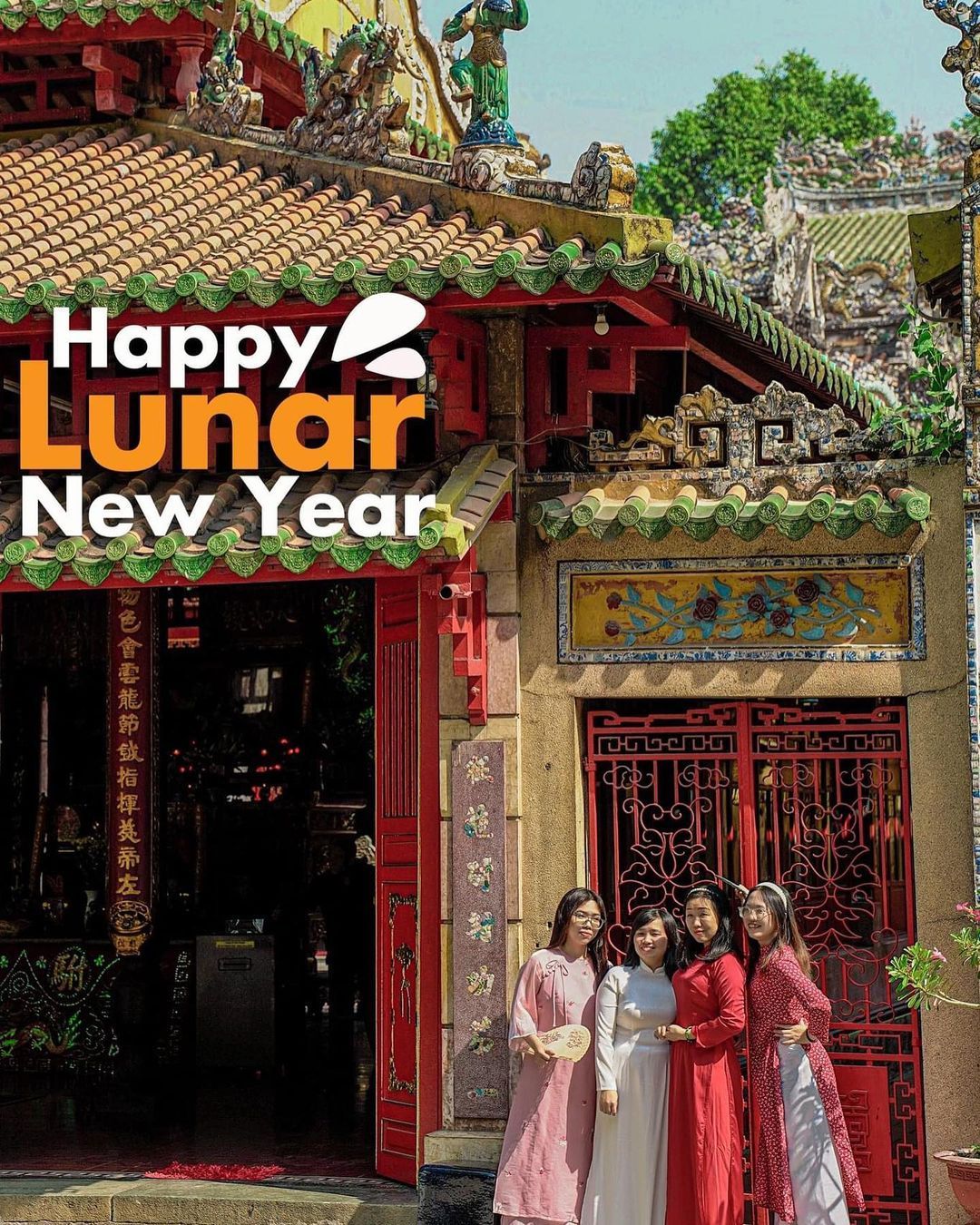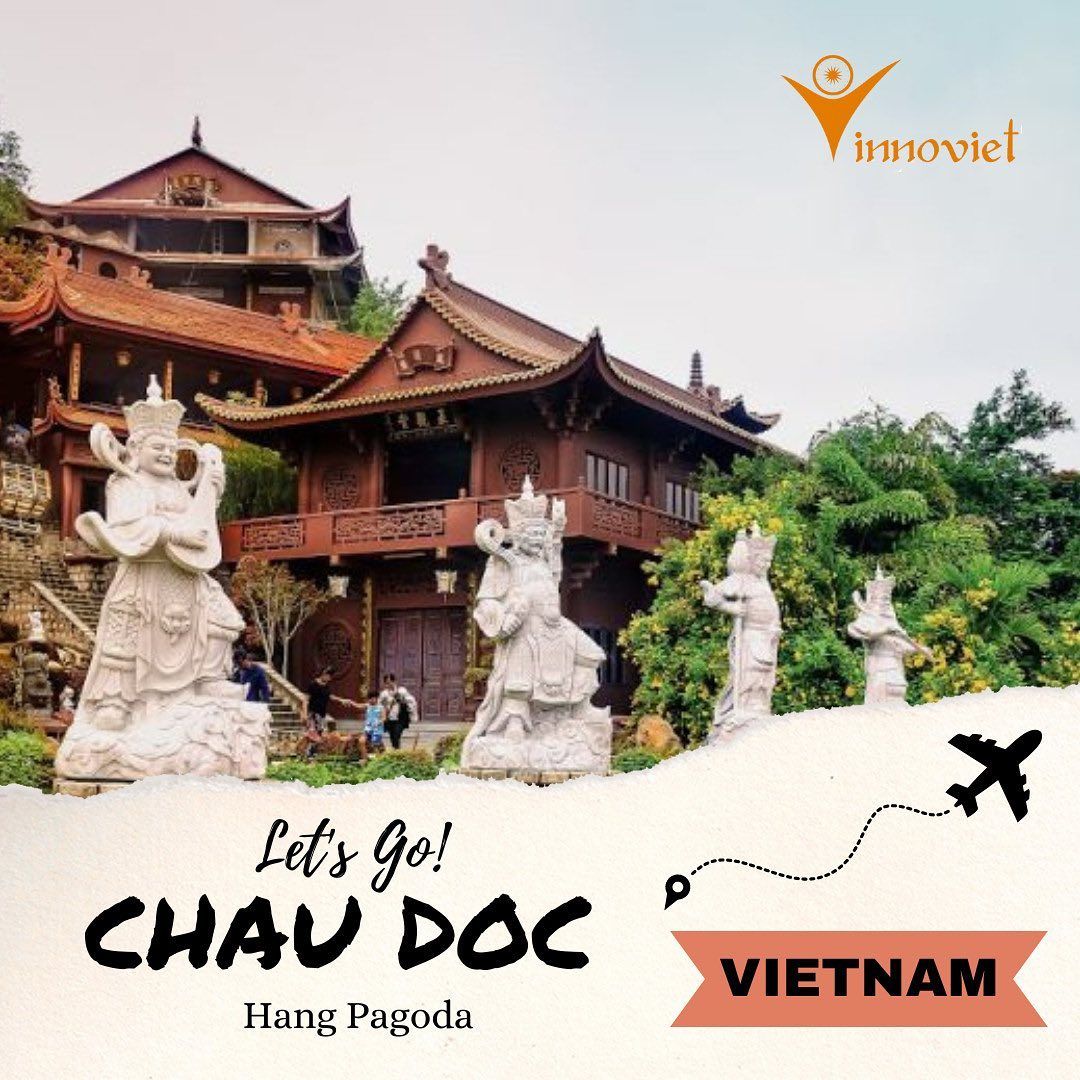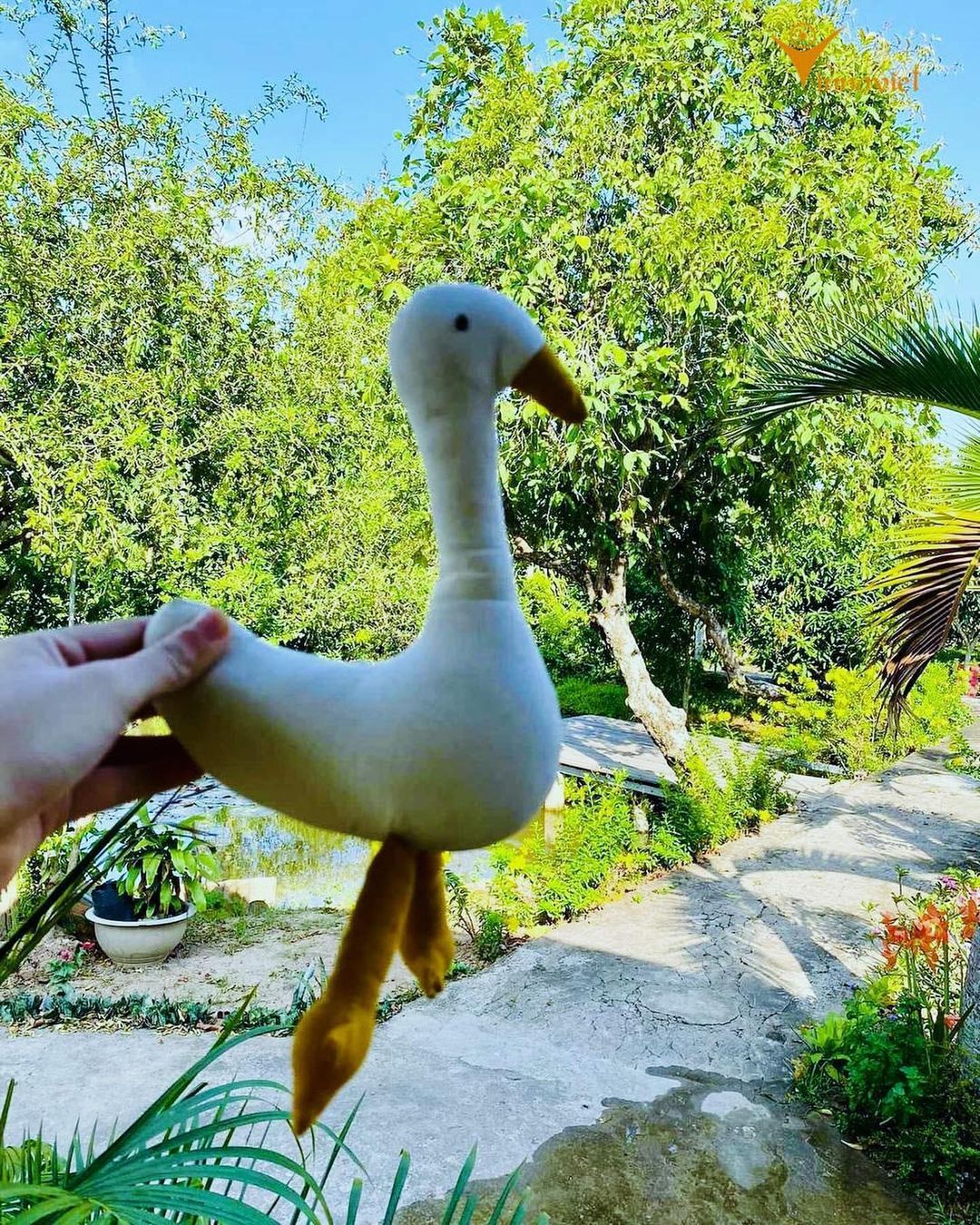The Cu Chi Tunnels are a vivid reminder of Vietnam's wartime past, where human ingenuity and perseverance crafted a unique underground network. As you embark on a journey from the bustling city of Ho Chi Minh to Cu Chi, you'll encounter secrets and stories hidden within these dark pathways. Join us in uncovering the facts, length, history, and map of Cu Chi to gain a deeper understanding of this integral part of Vietnam's cultural heritage.
Cu Chi Tunnels Vietnam Guide: Facts, Length, History, Map
Travel From Ho Chi Minh City - All about Cu Chi Tunnels
Cu Chi Tunnels (pronounce: Ku Chi) is an underground defense system located in Cu Chi District, 70 km northwest from District 1, Center of Ho Chi Minh City. This system was dug by the Viet Minh resistance army and the National Liberation Front of South Vietnam during the Indochina War and the Vietnam War. The tunnel system consists of infirmary, many rooms, kitchen, storage, office, underground tunnel system, about 250 km long and ventilation systems located in the bushes.
- Location: Cu Chi District, Ho Chi Minh City, Vietnam
- Opening Hours: From 7:30 AM - 5:00 PM Everyday
- Dress Code: Comfortable Clothes, Shoes and Torch
- Entrance Fee: Ticket Price - 100.000 VND/Adult/Turn
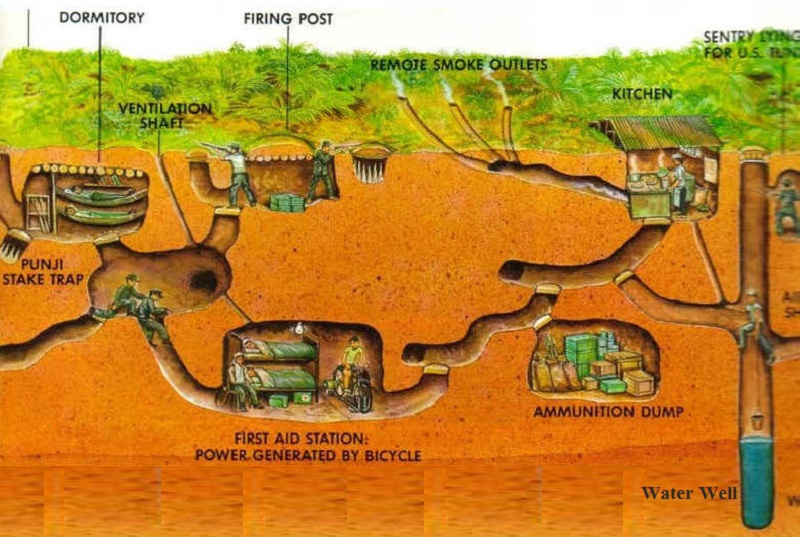
Map of Cu Chi Tunnels System
Cu Chi Tunnels were built at the end of the Ho Chi Minh Trail, on a land known as "steel land" to praise the strong will of the local people and army here. During the 1968 Tet Offensive, the Southern Liberation Army came from this tunnel system to attack Saigon. The Cu Chi Tunnels today include Bến Đình Area and Bến Dược Area for tourists to visit.
History of Cu Chi Tunnels System:
Cu Chi Tunnels is a common term for the different tunnels, formed between 1946-1948, during the Indochina War (French War). During this time, the military and local people of Tan Phu Trung and Phuoc Vinh An dug short tunnels, a simple structure used to hide people, documents and weapons. It was also suggested that the excavation started by the people of this area spontaneously in 1948.
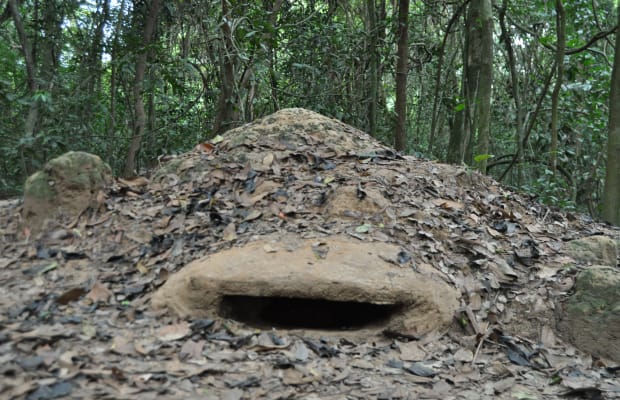
Ventilation Air Holes in Cu Chi Tunnels
Residents initially dug individual tunnels to evade French army raids and provide shelter for the Viet Minh. Later, these tunnels were interconnected to form a complex network, especially in the six northern communes of Cu Chi, becoming strategic hideouts for guerrilla forces.
From 1961 to 1965, Cu Chi's northern communes constructed a central axis known as "the backbone." Branches extended from this axis, connecting tunnels between hamlets, communes, and regions. Above ground, trenches were dug, and multi-layered battle tunnels, alleys, mounds, minefields, bunkers, and nail holes were strategically arranged to create fortified guerrilla battlefields, termed "battle communes."
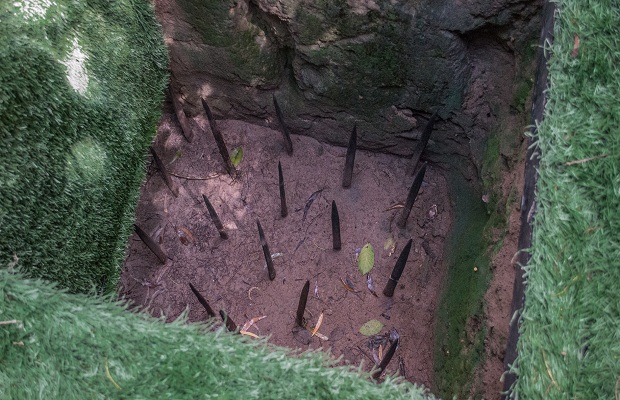
Booby Trap in Cu Chi Tunnels
By 1965, about 200 km of the tunnel were dug. In terms of scale, the tunnel system has a total length of over 200 km, with 3 different depth layers, the upper layer is about 3 m deep under ground, the middle layer is about 6 m deep under the ground, the bottom layer is deeper than 12 m. At this time, the tunnel is not only a shelter but has become a place to live, ambulance, meeting, ...

Authentic Floating Markets Off the Beaten Path
Structure of Cu chi Tunnels System:
Cu Chi Tunnels were dug on a laterite clay area, so it is durable and less prone to landslides. The tunnel system is located deep underground, can withstand the destructive power of the largest blockbusters of the US military. Air is drawn into the tunnel through the vents. Different areas of the tunnel can be isolated as needed.
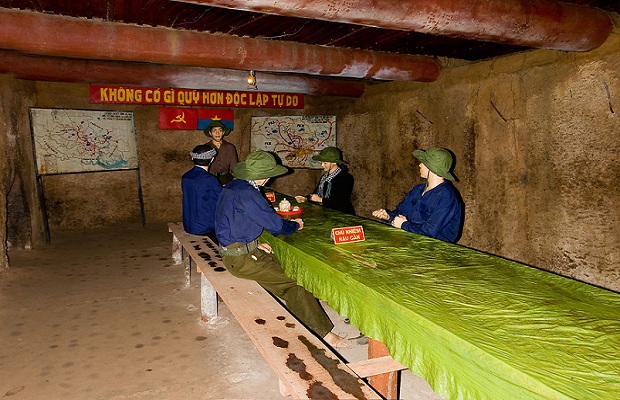
Commander Room in Cu Chi Tunnels System
The tunnel is 3 to 12 meters deep under ground, the height is only enough for one person to stoop. The first basement at the edge of the forest has an underground well that provides drinking water and living for the entire tunnel.
The tunnel system consists of 3 floors, from the "backbone" radiating countless long, short branches connecting each other, with branches extending to the Saigon River. Level one 3m under ground, resistant to bullets and the weight of tanks, armored vehicles.
The second floor lies 5 meters below ground level, offering protection against minor bomb blasts, while the deepest floor ranges from 8 to 12 meters underground. Access between these levels is concealed through secret hatches. Camouflaged above ground to resemble termite mounds, ventilation shafts discreetly line the tunnel. Within the tunnels, larger chambers serve as resting areas and storage spaces for weapons, food, water wells, Hoang Cam stoves, command centers, and medical facilities. Some sections feature spacious vaults and ceilings, cleverly disguised as airy rooftops, allowing for recreational activities such as movie screenings and artistic performances.
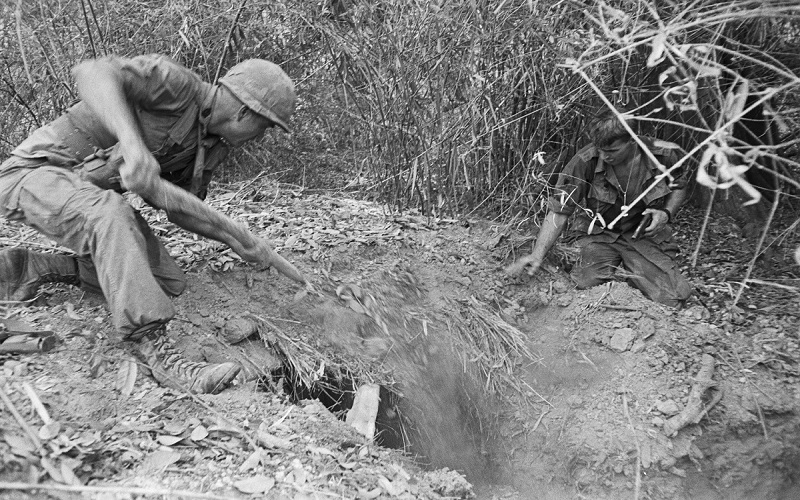
Although the US army and South Vietnamese Army had put a lot of effort with many operations to destroy the tunnels sysem (including sending "tunnels rats" into the tunnels), but they failed to bring down the system completely. The reason is that these tunnels were built isolated and had different escapes out to the Saigon River, counterfeit bunkers and booby traps.
In the tunnel system, there are some special closed-door buttons set up in different places to prevent the enemy and toxic gas. The soldiers also carved unrevealed ventilation vents onto the ground and camouflaged them extremely discreetly. Also, there are many skillful deadly and dangerous traps that were arranged to keep safe for those insides.
Cu Chi Tunnels Shooting Range:
With shooting real bullet, Cu Chi firing range price is 20,000 VND per bullet with K54; 23,000-25,000 VND per one with Colt 45, K59, Rulo; with AK(1), Carbin, AK and M16(1) the price is 30,000-35,000 VND per one. The highest price per one is 40,000 VND when you choose M16. K54, Colt 45, K59, Rulo, Ak (1), Carbin, AK, M16 and M16 (1) are kinds of gun used in the military. There are supervisors loading guns for you and make sure you get some headgear to protect your ears since it is super loud. Remember safety is first.
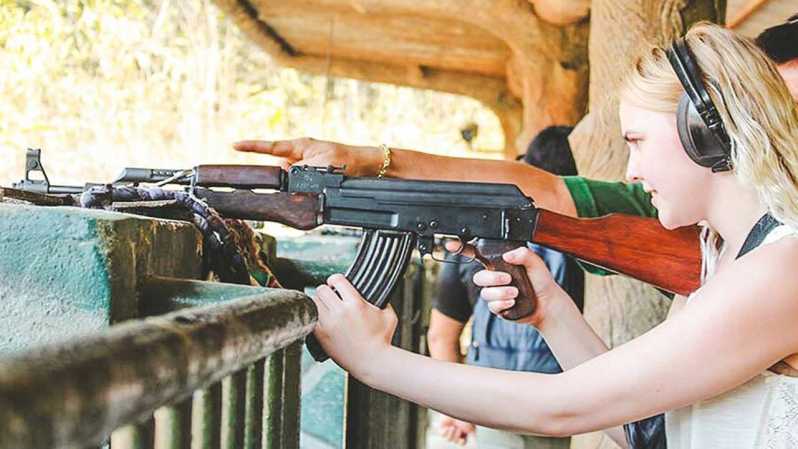
Cu Chi Tunnels Shooting Range
The other is paintball shooting which is cheaper than real one. Cu Chi shooting range price with paint bullet is 3,000 VND/one. There are three kinds of gun in your choice including: AK, M16 and handgun. Each kind of these is different from quantity of bullet. There are 25 bullets with AK, 20 with M16 and 7 with handgun. Meanwhile, the paint shooting match may host a group from 6 people to up. Your group may be fight with others or separated members from your group. In addition, players also pay for services fee including uniform, mask, battlefield and refugees.
Recommended Tours:
Start your journey today and create unforgettable memories in Cu Chi Tunnels From Ho Chi Minh City here:
Cu Chi Tunnels & Mekong Rural Life | Innoviet Travel
Small group tour cu chi tunnels - Cu Chi tunnel half day tour - Ben Duoc Tunnel Tour
Cu Chi Tunnels & Mekong Rural Life
Your extraordinary experience begins here!

JOIN OUR FACEBOOK GROUP HERE to learn our tips as well as discuss them before going to these locations.
Be sure not to miss out on our special offer when you join us for this experience


